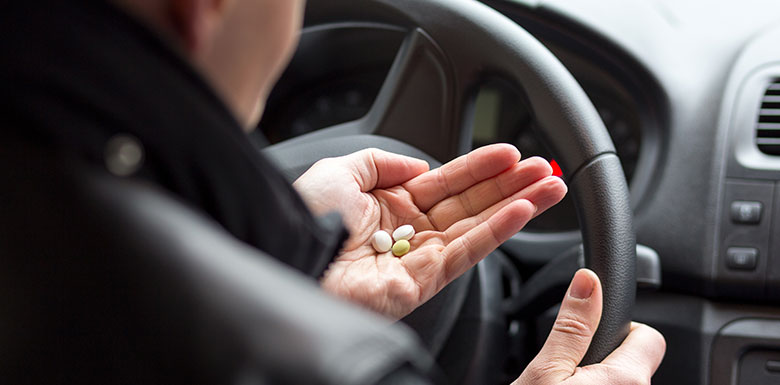What Is Considered Possession in North Carolina?
By
Randall Law, PLLC excels in criminal defense, serving clients in Charlotte, NC & other surrounding cities.
Learn More
Randall Law, PLLC
i
Category Drug Charges, Drug Crimes, Drug Offenses
Monday, March 1, 2021

Have you or a relative been charged with drug possession? Drug possession charges in North Carolina rest on whether you possessed a controlled substance. If you did, you’re facing a misdemeanor or felony charge depending on the type of drug, packaging of the drug, and quantity of the drug. If convicted of drug possession, you are facing time in jail and/or prison, hefty fines, a period of time on probation, and a permanent criminal record.
The best thing you can do is hire a Charlotte drug possession defense attorney. At Randall Law, Criminal Defense Attorneys, we understand the nuances of possession under North Carolina law. We take a close look at your case to see if we can attack the prosecutor’s case requiring them to prove all elements of possession beyond a reasonable doubt.
Actual Possession
When you think of possession, you probably think of what the law refers to as actual possession.
In drug cases, actual possession means:
- The drugs were found on your person
- Nobody else had equal access to the drugs found
- You had the intent to possess the type of drug you are accused of possessing
Actual possession is fairly straightforward and simply requires that the drugs, or other contraband, was found on your person with nobody else having access to the same. We realize there are circumstances where it is not so cut and dry. You might not have known someone slipped drugs into your coat pocket or purse. We aren’t afraid to fight allegations of actual possession in court.
Constructive Possession
More often than not, possession debates are about whether you had constructive possession of drugs.
In drug cases, constructive possession means:
- The drugs were not found on your person, but were found in your vicinity with you having the ability to access the drugs for the purpose of disposing of or using them, OR
- The drugs were found in a location where multiple people had knowledge of and access to the drugs (ex. In a car with multiple passengers)
You can have constructive possession of drugs alone or with others. Prosecutors don’t have to prove exclusive possession to win a conviction under the theory of constructive possession.
Prosecutors often try to prove you had constructive possession if the drugs were in your house, apartment, or vehicle. While the theory of constructive possession is useful when multiple people are charged, the argument is strongest if you’re the sole occupant of the home or user of the vehicle.
It might seem like the prosecutor has an easy job proving constructive possession and this becomes even more true if you don’t aggressively defend yourself when facing drug charges. Drugs in your vicinity aren’t necessarily yours, and we’ll pose that issue to the judge or jury. We’ll force the prosecutor to build a stronger link between you and the drugs, and when they can’t, this raises reasonable doubt.
Understanding Possession During a Traffic Stop
Here’s an example of actual possession versus constructive possession. Let’s say you’re a passenger in the front seat of your friend’s vehicle. A police officer pulls your friend over and arrests them for driving while intoxicated. After the arrest, they search your friend and their vehicle for alcohol or drugs related to the DWI.
If the officer finds a small bag of drugs in the center console, which nobody takes ownership of, the officer can arrest you and your friend for drug possession based on constructive possession. As a drug possession defense attorney, we’d argue, among other things, you were unaware of the drugs for had no control over what the driver did with them.
What if you were driving, and the officer found drugs in your pocket? The prosecutor would claim you had actual possession of the drugs.
The more complicated scenario is when you’re the driver. If an officer arrests you and finds drugs in the armrest or glove box of your car, the prosecutor has a stronger connection between you and the drugs. It’s harder to challenge the claim of constructive possession if you’re the only person who uses the car. But it’s possible to weaken that claim if you share the vehicle or often give rides to friends who could’ve placed the drugs there without your knowledge or consent.
When we tackle drug possession cases arising from traffic stops, we consider many factors including, but not limited to:
- Who owned the car?
- Who often drove the car?
- Who was a recent passenger in the car?
- Who had access to the car when you weren’t present?
- How many people were in the car?
- Where were the drugs found?
- Where the drugs found due to an illegal search and/or seizure?
Defend Against Actual or Constructive Possession
It’s possible to defend against allegations of actual or constructive possession, but you’ll need an experienced drug crime defense attorney in North Carolina. You can’t do this alone. Talk with our legal team at Randall Law about your situation and the best way to establish the drugs weren’t yours.
You can reach out to us online or call (980) 237-4579 to set up a free initial consultation with a Charlotte criminal attorney near you.
